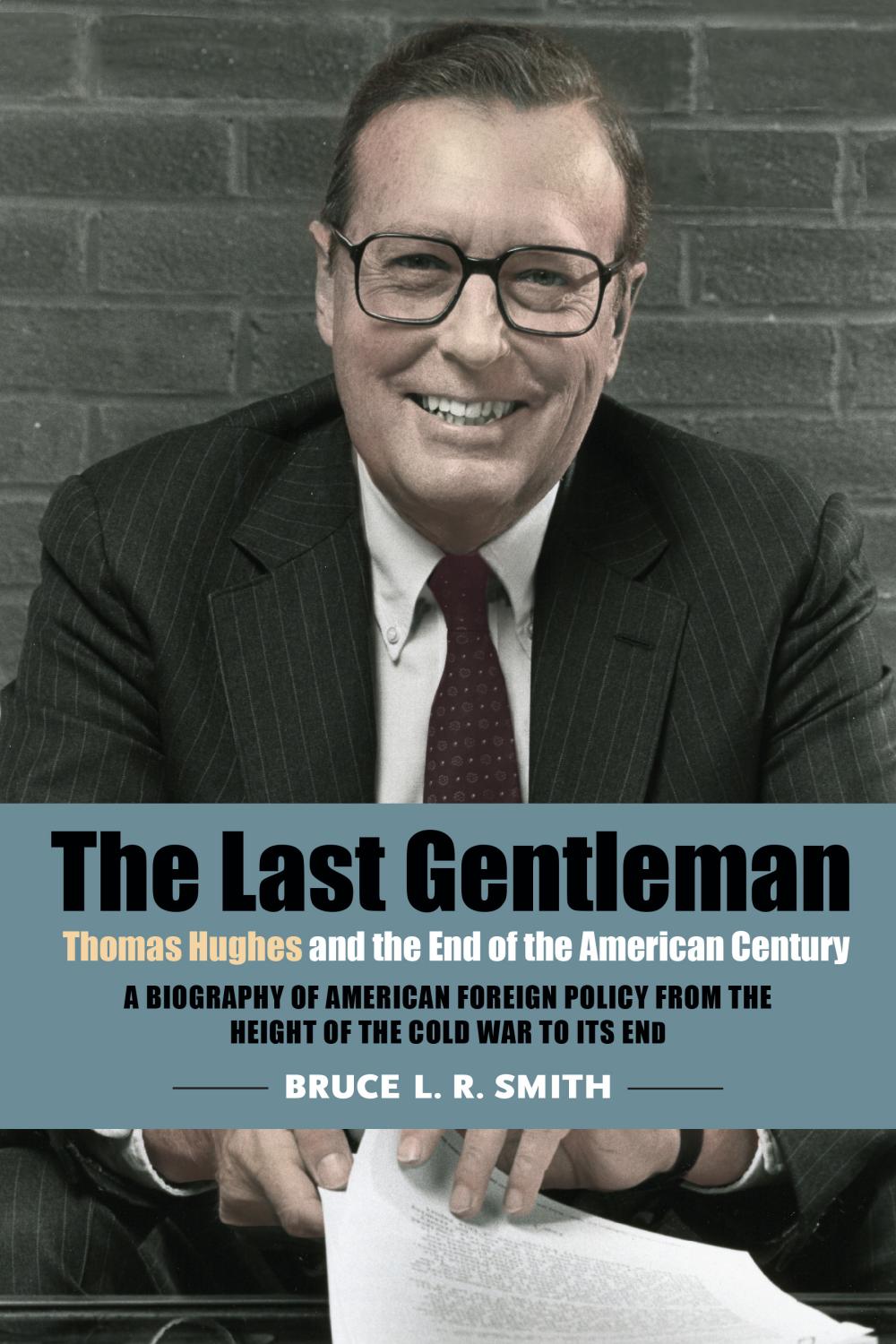A behind-the-scenes account of American foreign policymaking in the late twentieth century
Tom Hughes, assistant secretary of state for intelligence and research, made an ominous prediction in 1965. In a seminal but less well-known document of the Vietnam War, Hughes predicted that the Democratic Party and the national consensus underlying the nation’s foreign policy would break apart if the war escalated.
Hughes drafted the memo for his friend and fellow Minnesotan for whom he had previously worked as legislative counsel, Senator Hubert Humphrey. Humphrey had just been elected Vice President. The memo called on President Johnson to seek negotiations to end the war, but clearly failed to persuade him.
Tom Hughes saw his prediction come true.
Hughes served in the State Department through 1970 and then for 20 years as president of the Carnegie Endowment for International Peace. He worked to reestablish a professional, bipartisan foreign policy for the United States and to make the foreign service more open and democratic. He also built the Carnegie Endowment into the nation’s leading foreign policy think tank, and he remained influential in foreign policy circles.
In this impressive biography, Bruce L. R. Smith tells the story of this remarkable life, which also reflects much of the story of America in the last half of the twentieth century.
Through the eyes, diary, and notes of a key participant, the book provides a contemporaneous perspective on such major events as the Bay of Pigs fiasco and the CIA’s Operation Mongoose against the Castro regime, the Cuban missile crisis, Vietnam, and the elections of the 1960s. This book is a firsthand, behind-the-scenes account of the people who dealt with the great issues and made critical life-and-death decisions for America during the cold war.
Praise for The Last Gentleman
“If there is anyone in Washington who can credibly lay claim to the moniker of “smartest person in the room”—any room, anytime—it is Tom Hughes. There is also a good chance, in most rooms he steps into, that he is the funniest, the best piano player, and has the clearest memory for historical detail. Intellectual historian Bruce L. R. Smith has taken on the task of telling the life story of Thomas L. Hughes, child prodigy and Minnesota state debate champion, essential political adviser and liberal internationalist, and the man who brought the Carnegie Endowment for International Peace into the modern era, along the way creating a new model for the “think tank.” To understand how America slipped and fell from grace in the late twentieth and early twenty-first centuries, and how people like Hughes tried behind the scenes to prevent it from happening, this astute biography should be at the top of your reading list.”
—Sanford J. Ungar, former managing editor of Foreign Policy magazine and former director of the Voice of America; director of the Free Speech Project at Georgetown University
“Tom Hughes epitomized the best of America during the Cold War. Whether in government or a think tank, he always accented freedom, justice, and the pursuit of democracy as the proper goals of American policy and was among the first to warn of the dangers of a deeper involvement in Vietnam. Hearty thanks to author Bruce Smith for this terrific book.”
—Marvin Kalb, nonresident senior fellow, Brookings Institution
“Tom Hughes had a ringside view of history, serving in the Kennedy, Johnson, and Nixon administrations during tumultuous times. Bruce Smith tells his tale well with both careful documentation and fascinating anecdotes. It is a very good read.”
—Joseph S. Nye Jr., former dean, Harvard Kennedy School
“Bruce Smith has composed an elegant, carefully researched biography of Tom Hughes, an intelligence official for the Kennedy and Johnson administrations, bringing out new insights into U.S. policy and failures on Cuba and Vietnam. In showing how policy decisions were made, the book offers a vivid and engrossing account of key Cold War events.”
—Anders Åslund, adjunct professor, Georgetown University’s School of Foreign Service
“In The Last Gentleman, Bruce Smith analyzes the most turbulent and critical period of America’s post–WWII foreign policy through the career of Tom Hughes, director in the 1960s of the State Department’s Bureau of Intelligence and Research. Hughes served as a key adviser in major crises from the Soviet missiles in Cuba to Vietnam. This is a must-read.”
—Lawrence J. Korb, senior fellow, Center for American Progress; assistant secretary of defense (1981–1985)
Author
Bruce L. R. Smith is a retired professor political science at Columbia University and senior staff member at the Brookings Institution. His work has been in the fields of American politics, American foreign policy, and the impact of science on public affairs. His previous books include Lincoln Gordon: Architect of Cold War Foreign Policy; Closed Minds? Politics and Ideology in American Universities (with J. D. Mayer and A. L. Fritschler); The Advisers: Scientists in the Policy, American Science Policy Since World War II; and The RAND Corporation: Case Study of a Nonprofit Advisory Corporation.

